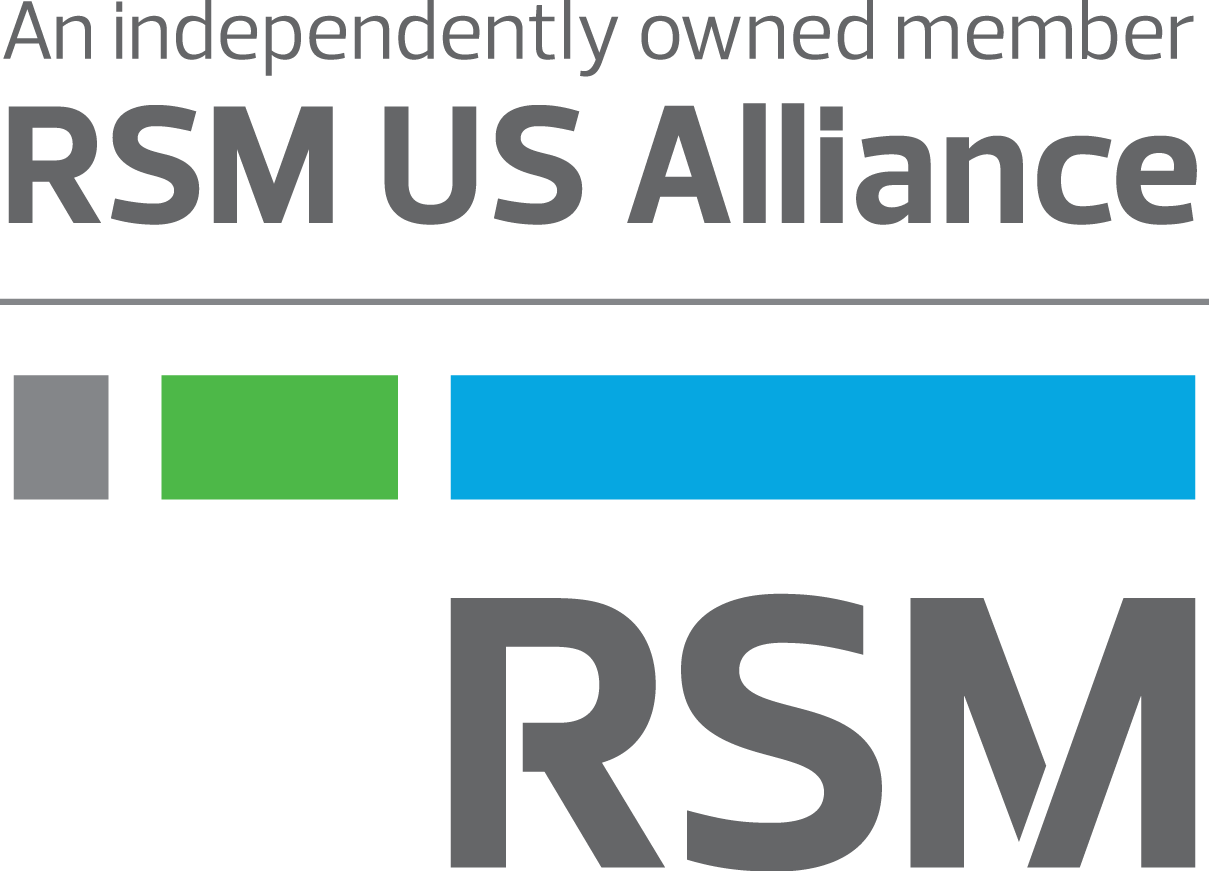
Minnesota passes tax conformity bill
TAX ALERT | January 19, 2023
Authored by RSM US LLP
Executive summary: Minnesota updates IRC conformity
On Jan. 12, 2023, Minnesota Gov. Tim Walz signed HF 31 into law. The bill updates Minnesota’s conformity to the Internal Revenue Code (Code) as of Dec. 15, 2022. Minnesota previously conformed to the Code in effect on Dec. 31, 2018.
HF 31 adds specific decoupling provisions that ensure Minnesota remains decoupled from certain Code sections enacted after 2018 but which had retroactive effective dates for federal purposes. Consequently, much of the new bill is clarifying, but not changing, the haphazard conformity of the prior law. Some taxpayers may not see a significant tax impact as a result of the changes, but other taxpayers could be materially impacted due to retroactive application of the changes and need to consider amended returns.
Conformity updates in detail
Business interest limitation
Minnesota has historically conformed to the federal business interest limitation rules under section 163(j), as codified in the Tax Cuts and Jobs Act (TCJA), which limit deductible interest expense to 30% of adjusted taxable income (ATI). However, Minnesota did not adopt the temporary changes made to section 163(j) by the Coronavirus, Aid, Relief and Economic Security (CARES) Act, enacted in 2020, which increased the limitation to 50% of ATI for tax years 2019 and 2020.
The bill provides that any amounts deducted under section 163(j) for federal purposes related to the increase in the ATI limitation enacted in the CARES act should be added to federal taxable income in the computation of Minnesota taxable income. The addition provisions are retroactive, intended to offset the update in the general IRC conformity and maintain the state’s historical treatment of the business interest expense limitation changes made by the CARES Act.
Additionally, for each of the five taxable years beginning after Dec. 31, 2022, taxpayers are allowed to subtract 20% of the total interest expense additions required during the 2019 and 2020 tax years, to the extent the additional carryforward has not already otherwise been recovered through application of the section 163(j) rules in tax years 2021 and 2022. This subtraction for “delayed business interest” applies to tax years beginning after Dec. 31, 2022.
The Minnesota changes to required additions related to business interest expense under the CARES Act as well as the associated subtraction for delayed business interest apply to individuals, estates, trusts, and corporations.
Delayed net operating loss subtractions
For federal purposes, the TCJA made several changes to the treatment of net operating losses (NOLs), including eliminating carrybacks, limiting utilization to 80% of taxable income and changing the carryforward period for post-2017 NOLs to be indefinite. The CARES Act temporarily removed the 80% limitation and allowed for NOLs generated in 2018 through 2020 to be carried back for five years. Minnesota previously decoupled from the changes to NOLs made under the CARES Act.
Since Minnesota’s updated conformity date would technically include the NOL changes enacted in CARES, the bill includes specific provisions intended to clarify Minnesota’s NOL rules and maintain the historical decoupling from these federal provisions. Minnesota will continue to allow taxpayers to deduct NOLs up to a limit of 80% of taxable income and to carry forward state NOLs for 20 years. However, the state continues to decouple from the special federal NOL carryback rules for losses generated in tax years 2018, 2019 and 2020, and does not allow NOL carrybacks.
Excess business losses
The TCJA enacted the excess business loss provisions of section 461, limiting the amount of business losses noncorporate taxpayers may use to offset nonbusiness income. The enactment of the CARES Act delayed the effective date of those provisions to tax year 2021 for federal purposes. HF 31 includes specific retroactive addition modifications to preserve the historical treatment of excess business losses for Minnesota purposes—losses allowed for federal purposes under the CARES Act should have been added back in the computation of Minnesota taxable income in prior years.
However, for tax years beginning in 2026, a subtraction is allowed for any excess business losses that are limited for federal purposes, effectively decoupling Minnesota from the federal provisions for 2026 and beyond.
QIP technical fix conformity
Due to the advanced conformity, Minnesota now conforms to the CARES Act technical fix for qualified improvement property (QIP), which corrects an error enacted in the TCJA that made QIP ineligible for bonus depreciation and depreciable over a 39-year recovery period. With the CARES Act fix, QIP placed in service in 2018 or later is eligible for federal bonus depreciation and has a recovery period of 15 years. Minnesota’s conformity to this provision is effective retroactively to tax year 2018. Taxpayers who reported a Minnesota depreciation difference in prior years on original or amended returns related to the different recovery periods for QIP for federal and Minnesota purposes may want to consider amending returns to reflect the state’s updated conformity rules.
Other conformity issues
In addition to the issues already noted, the bill provides for non-conformity to several temporary provisions enacted in the CARES Act, the Consolidated Appropriations Act (CAA), the American Rescue Plan Act (ARPA), and the Further Consolidated Appropriations Act (FCAA) that would otherwise be adopted through the updated conformity date. Note that these non-conforming provisions serve to preserve the state’s historical non-conformity to federal legislation rather than to create new decoupling from federal law. A selection of those provisions follows below:
- The increase in the charitable contribution limitation for tax years 2020 and 2021 for businesses and trusts and the above-the-line deduction for certain cash contributions for individuals (CARES and CAA)
- Temporary increase in deductibility of certain business meals for tax year 2021 and 2022 (CAA)
- Limitation on the deductibility of wages used to claim the employee retention credit (CARES)
- Increases in income for businesses claiming certain federal payroll credits (CARES and ARPA)
- Changes to the working family and dependent care credits (ARPA)
- Special rules for disaster-related casualty losses (FCAA and CAA)
Additional changes and tax cuts
Though the provisions of HF 31 are primarily focused on advancing conformity to the Code, there are a handful of other noteworthy changes in the legislation:
- A provision clarifying that once an owner of a pass-through entity (PTE) claims a credit on their individual return for the PTE tax paid by the entity on the owner’s behalf, the PTE cannot receive a refund of PTE tax paid. Any refund must be claimed by the individual owner on the owner’s return. This provision is retroactive to the 2021 tax year
- Conformity to ARPA’s limited student loan debt forgiveness under section 108(f)
- An income exclusion for businesses receiving certain federal loans or grants authorized as part of the various federal COVID-19 relief efforts and creates additional state-level tax cuts for theatre and performing arts organizations eligible to receive federal Shuttered Venue Operator grants
Takeaways
Much of Minnesota’s tax code remains substantially similar to the rules in effect prior to HF 31’s enactment. Many taxpayers and tax practitioners consider the legislation to be long overdue with the number of significant federal tax law changes enacted since 2019. However, the updated “conformity” still may feel like patchwork for many taxpayers, based on the myriad of required retroactive adjustments to preserve historical non-conformity and numerous specific decoupling provisions. Additionally, taxpayers that filed a nonconformity schedule with their 2017 through 2022 Minnesota tax returns may need to file amended returns, to the extent the changes in HF 31 would impact tax in a prior year. To assist taxpayers in understanding the various changes made by HF 31, the state has released guidance on conformity to certain federal provisions, an updated frequently asked questions page and a chart summarizing form and line changes to prior year nonconformity schedules related to the legislation. All amended returns required to be filed as a result of HF31 must be filed by Dec. 31, 2023. Furthermore, taxpayers with impacted prior year returns should amend those prior to filing their 2022 returns in order to properly reflect any carryforward adjustments. Taxpayers with questions about Minnesota’s extensive new tax legislation should consult with their state and local tax advisers for more information.
This article was written by Joe Wessbecker, Mo Bell-Jacobs, Ron Hillmer and originally appeared on Jan 19, 2023.
2022 RSM US LLP. All rights reserved.
https://rsmus.com/insights/tax-alerts/2023/Minnesota-passes-tax-conformity-bill.html
The information contained herein is general in nature and based on authorities that are subject to change. RSM US LLP guarantees neither the accuracy nor completeness of any information and is not responsible for any errors or omissions, or for results obtained by others as a result of reliance upon such information. RSM US LLP assumes no obligation to inform the reader of any changes in tax laws or other factors that could affect information contained herein. This publication does not, and is not intended to, provide legal, tax or accounting advice, and readers should consult their tax advisors concerning the application of tax laws to their particular situations. This analysis is not tax advice and is not intended or written to be used, and cannot be used, for purposes of avoiding tax penalties that may be imposed on any taxpayer.
RSM US Alliance provides its members with access to resources of RSM US LLP. RSM US Alliance member firms are separate and independent businesses and legal entities that are responsible for their own acts and omissions, and each are separate and independent from RSM US LLP. RSM US LLP is the U.S. member firm of RSM International, a global network of independent audit, tax, and consulting firms. Members of RSM US Alliance have access to RSM International resources through RSM US LLP but are not member firms of RSM International. Visit rsmus.com/aboutus for more information regarding RSM US LLP and RSM International. The RSM(tm) brandmark is used under license by RSM US LLP. RSM US Alliance products and services are proprietary to RSM US LLP.

VPTAX is a proud member of RSM US Alliance, a premier affiliation of independent accounting and consulting firms in the United States. RSM US Alliance provides our firm with access to resources of RSM US LLP, the leading provider of audit, tax and consulting services focused on the middle market. RSM US LLP is a licensed CPA firm and the U.S. member of RSM International, a global network of independent audit, tax and consulting firms with more than 43,000 people in over 120 countries.
Our membership in RSM US Alliance has elevated our capabilities in the marketplace, helping to differentiate our firm from the competition while allowing us to maintain our independence and entrepreneurial culture. We have access to a valuable peer network of like-sized firms as well as a broad range of tools, expertise, and technical resources.
For more information on how the VPTAX can assist you, please call us at (408) 278-8370.